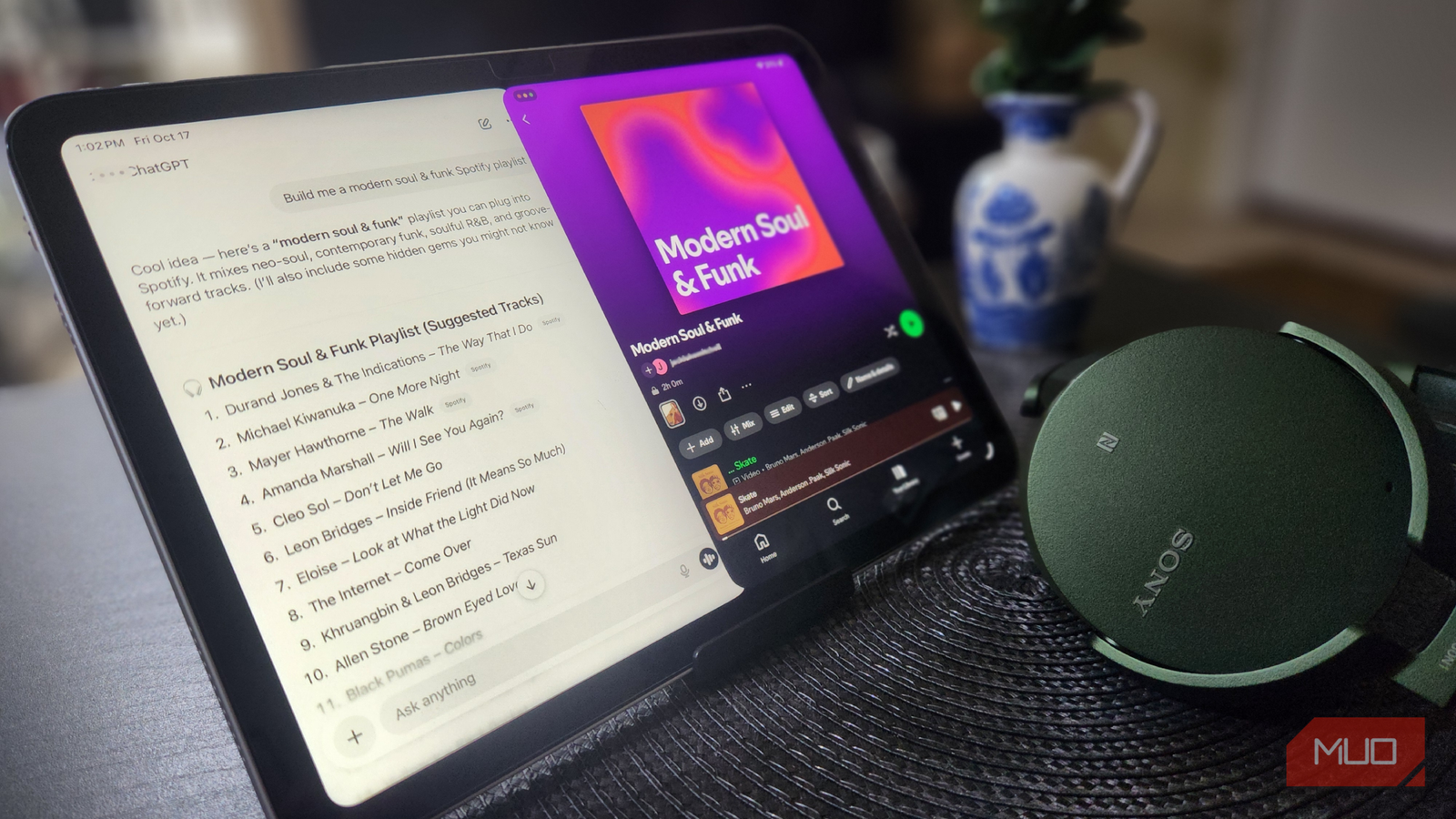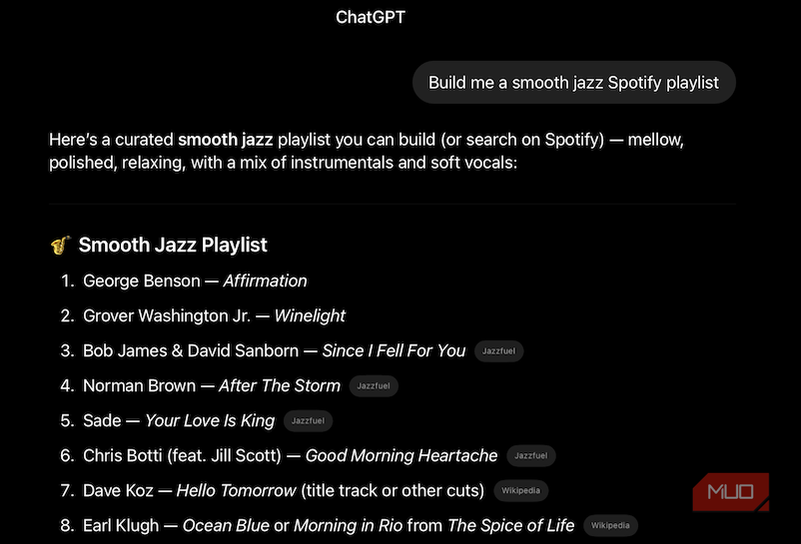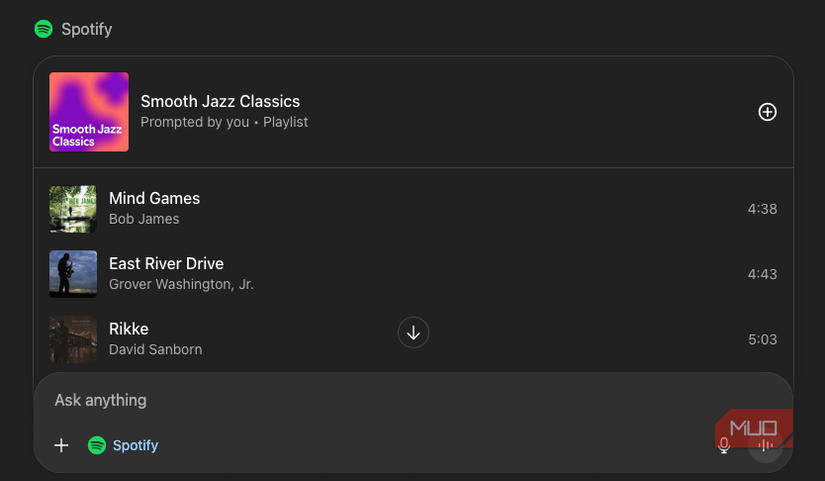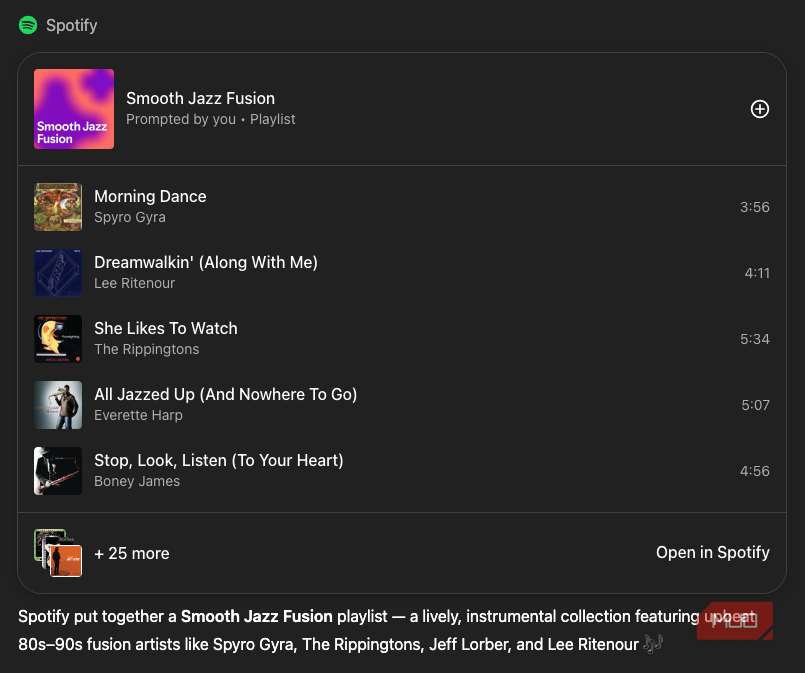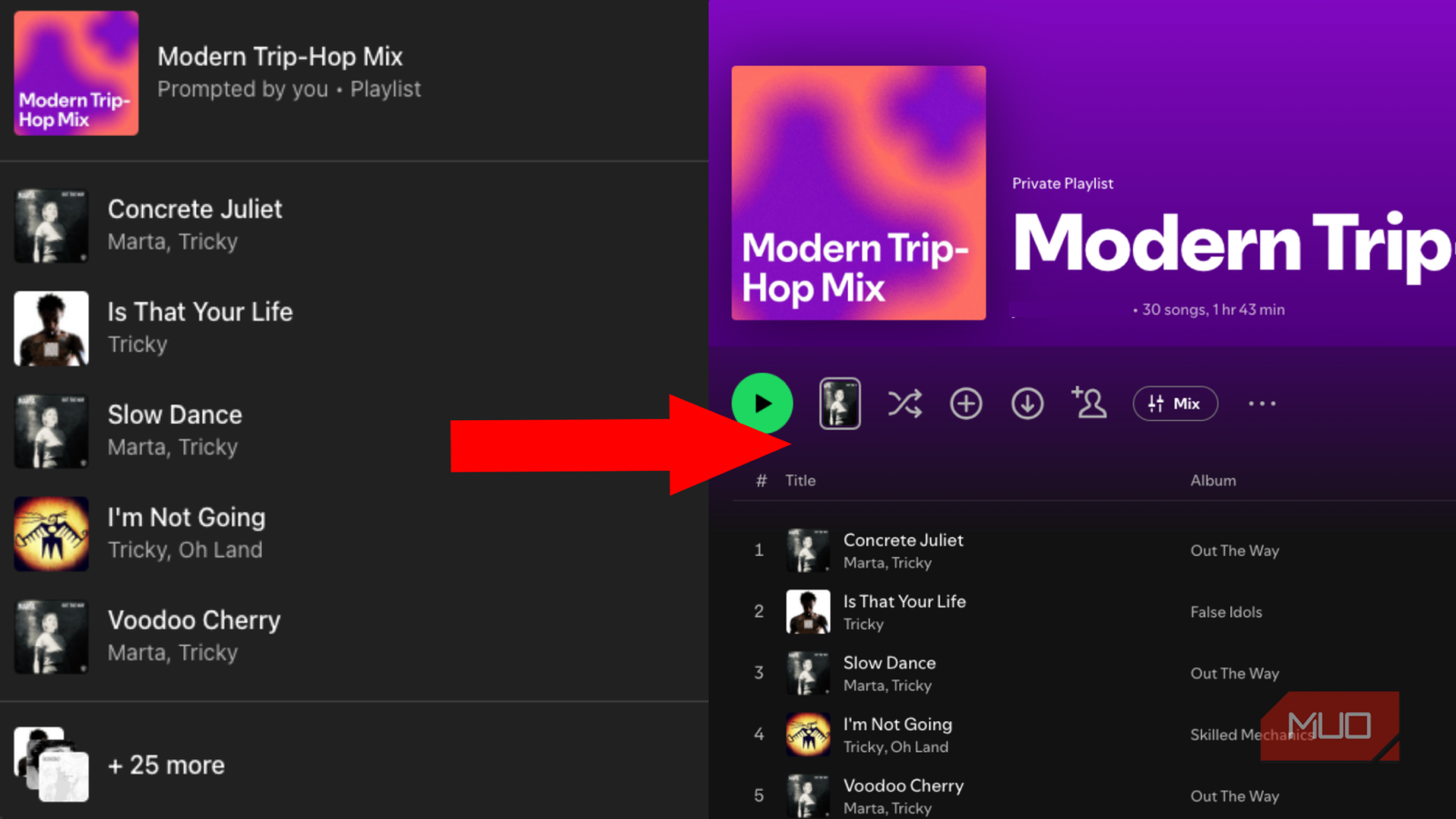I admit to being a little wary of AI, especially in matters related to artistic endeavors, where it already threatens to replace human creativity. However, when OpenAI introduced the capability to link my Spotify account directly to ChatGPT, my curiosity was piqued.
I had to see for myself whether AI could truly understand my musical tastes and create playlists tailored to my specific mood on any given day. If this were the case, it could streamline my listening habits and enable me to find music that exists far beyond my radar. It was time to give it a try.
Setting up AI integration with my favorite music streaming service
How ChatGPT connects to Spotify
Getting started was as easy as mentioning Spotify in a ChatGPT prompt. I simply asked it to “build me a smooth jazz Spotify playlist.” A button then appeared at the foot of my browser, prompting me to use Spotify for this answer.
I clicked to agree and authenticate my Spotify connection, and I was off to the races. Now ChatGPT could access my listening data and use it to craft more accurate responses to my requests, as well as perform some helpful actions on my behalf, such as:
- Create, edit, or follow playlists
- Add or remove tracks
- Offer recommendations based on my past behavior
- Suggest podcasts or tracks matching specific themes or moods
- Open my results directly in the Spotify app
As someone who listens to music at work, while working out, and in transit, I often struggle for inspiration, so turning ChatGPT into a savvy DJ and music curator has plenty of appeal. But just how well did it perform in practical tests?
Create personalized mixes instantly using smart prompts
Setting up playlists in seconds
Once ChatGPT had created my smooth jazz playlist (please don’t judge), and I performed some necessary tweaks, such as “remove all Kenny G,” I noticed a widget had appeared with the prompt to open in Spotify. Seconds later, my playlist appeared in my Spotify library. Even at this early stage, the suggestions were pretty on point, featuring both artists I enjoy and related artists and bands, as well as some unfamiliar choices that sat well within the mix.
Next, I asked some more creative prompts. In search of background music for work, I requested a playlist featuring purely instrumental tracks. ChatGPT then asked if I wanted to refine it further, for example, with a focus on modern contemporary jazz or classic 80s-90s smooth jazz only. I opted for the latter, and again, I was impressed by the results.
Finally, I asked to refine it even further toward a more upbeat/fusion vibe. It delivered 30 tracks, which opened in Spotify as a playlist, already named “Smooth Jazz Fusion,” and totaling over two hours in duration. It could not have been easier.
Quickly find new artists and tracks tailored to your tastes
Music discovery made easy
What really interested me, much more than building playlists, is how Spotify integration would accelerate music discovery. Having granted ChatGPT permission to access my listening history, I wanted it to find material that aligns with my musical tastes but falls outside my usual musical radar.
To test this, I asked: “Name some artists from 2010 onwards who are similar in style to Stevie Wonder.” Sure enough, ChatGPT produced a list of artists, some popular, some obscure, and linked to them on Spotify. Already, I am discovering fresh talent like Anderson Paak, Lettuce, and Bluey, and I have started exploring their back catalogs.
Spotify was already good at lending a helping hand with music recommendations, but it had its limitations. You are very much at the mercy of the algorithm there, with no real options to refine your suggestions. ChatGPT, on the other hand, allows you to tweak its suggestions, whittling down your playlist until it’s exactly as you want it. This has revolutionized music discovery for me, although the feature isn’t without its own quirks and limitations.
Quirks and limitations that I noticed
It’s not perfect, but it is teeming with potential
While it’s early days for ChatGPT’s Spotify integration, I have noticed that some parts of it are a little rough around the edges:
- I cannot view entire playlists: ChatGPT only previews the first five tracks of a playlist. You must open it in Spotify to see it in its entirety. This was a bit frustrating, as I would like to see more content to determine if my playlist needs tweaking within ChatGPT first.
- Inability to follow some basic instructions: For example, I asked ChatGPT to “name some modern artists that are similar in style to Portishead and Tricky.” The resulting playlist included several tracks by those two acts, not similar artists. I had to refine my search to exclude them specifically.
- More emphasis on popular tracks: I found that many of the suggested playlists included the most popular songs from any artist, rather than those that best suited the mood or genre of the prompt.
- It didn’t always perfectly interpret context: When asking for songs that are “happy but relaxed,” some of the songs were in a minor key or were overly upbeat.
Some of these issues could likely be attributed to teething problems and may be resolved as the algorithm learns more from our prompts. And none of these quirks or limitations could be considered major problems that negatively affected usability or my enjoyment of the feature.
This is the future of AI-powered music
After just a few hours of tinkering with ChatGPT’s Spotify integration, it was abundantly clear that I would be regularly using this feature for playlist creation and music discovery. However, where it truly excels is its ability to refine my prompts and steer the conversation, allowing me to arrive at a tailored result quickly.
I’m hopeful that, over time, the algorithm will improve and offer more personalized and niche responses, aligning more closely with my tastes. But I am nitpicking. While Spotify’s music discovery has been a helpful ally in the past, ChatGPT takes it to the next level. After all, we each have unique musical tastes, so we should be able to make specific requests regarding what we want to listen to.

